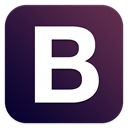Uncovering the Best mini.css Alternatives for Your Next Project
Mini.css is a commendable open-source CSS framework, lauded for its minimal footprint (just 7KB gzipped), responsiveness, and style-agnostic approach. While its simplicity is a significant advantage for many developers seeking a lightweight solution, certain projects or preferences might call for different functionalities or a more extensive feature set. If you're looking to explore other options that offer similar benefits or expand upon them, you've come to the right place. This guide dives into some of the top mini.css alternative frameworks available today.
Top mini.css Alternatives
Whether you need a more robust system, a different design philosophy, or specialized components, these alternatives to mini.css offer a wide range of features to suit diverse web development needs.

Bootstrap
Bootstrap is a widely recognized open-source collection of tools for creating responsive browser sites and applications. It provides HTML and CSS-based design templates for typography, forms, buttons, navigation, and other interface components, making it a comprehensive mini.css alternative. Being Free, Open Source, and Self-Hosted, it offers features like responsive design, active development, clean design, extensive documentation, and premade templates, making it ideal for projects requiring a rich, pre-styled UI kit.

Semantic UI
Semantic UI empowers designers and developers by creating a shared vocabulary for UI. As a Free, Open Source, Web-based framework, it focuses on making development a delightful experience with a natural language approach. Its key feature is responsive design, making it a strong mini.css alternative for those who prioritize semantic HTML and an intuitive component system.

Element UI
Element UI is a Vue 2.0 based component library designed for developers, designers, and product managers. This Free, Open Source, Web, Self-Hosted framework leverages CSS and JavaScript, specifically Vue.js, to provide a robust CSS framework. If your project is built with Vue.js, Element UI is an excellent mini.css alternative, offering a rich set of UI components tailored for that ecosystem.

Gridlex
Gridlex is a simple, robust, responsive, and flexible CSS grid system based on Flexbox (CSS Flexible Box Layout Module). It's a Free, Open Source, Web, Self-Hosted solution perfect for quickly creating modern layouts. As a CSS framework focusing on responsive design and web development, Gridlex serves as an effective mini.css alternative for projects where a powerful and straightforward grid system is paramount.

MUI
MUI is a lightweight HTML/CSS/JS framework that adheres to Google's Material Design guidelines. This Free, Open Source, Web-based framework is a strong mini.css alternative for developers who desire the aesthetic and interaction patterns of Material Design in their projects. Its features include being a CSS framework, embodying Material Design, offering responsive design, and supporting general web development.

Tailwind CSS
Tailwind CSS distinguishes itself from frameworks like Bootstrap by not being a UI kit. It's a utility-first CSS framework that doesn't have a default theme or built-in components. As a Free, Open Source, Self-Hosted CSS framework primarily for web development, Tailwind CSS is an excellent mini.css alternative for those who prefer building highly customized designs from scratch using low-level utility classes.

GroundworkCSS
GroundworkCSS is a 100% free and open-source responsive HTML5, CSS, and JavaScript Framework. Available for Web and Self-Hosted use, its primary feature is being a comprehensive CSS framework. GroundworkCSS is a robust mini.css alternative for developers seeking a full-featured yet flexible framework that provides all the essentials for modern web development.

Milligram
Milligram offers a minimal set of styles, providing a fast and clean starting point for projects. It's specially designed for better performance and higher productivity with fewer properties. As a Free, Open Source, Self-Hosted CSS framework for web development, Milligram is a fantastic mini.css alternative for those who appreciate extreme minimalism while still getting essential styling out of the box.

BareCSS
BareCSS is a CSS-only framework that styles frequently used HTML tags without requiring additional classes. It also provides utilities like a responsive grid. As a Free, Open Source, Self-Hosted CSS framework with developer tools, BareCSS is a compelling mini.css alternative for developers who want a truly class-less styling solution that focuses on semantic HTML.

yeti.css
yeti.css is a pattern library composed of lightweight, reusable modules, built to reflect specific visual and branding guidelines. Available for Free, Open Source use on Mac, Windows, Linux, and Self-Hosted environments, its primary feature revolves around providing structured forms. While more niche, yeti.css can be a suitable mini.css alternative for projects needing a lightweight, opinionated set of styles with a focus on form presentation.
Choosing the right CSS framework depends entirely on your project's specific requirements, your team's familiarity with certain tools, and the desired level of customization. Each of these mini.css alternatives offers unique advantages, from comprehensive UI kits to minimalist utility-first approaches. We encourage you to explore their documentation and demos to determine the best fit for your next web development endeavor.